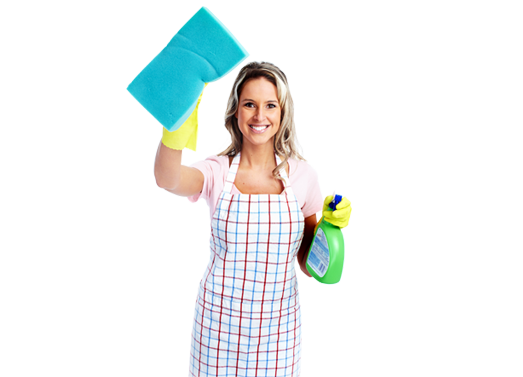Expert Advice on Maintaining Clean Curtains
Posted on 06/09/2025
Expert Advice on Maintaining Clean Curtains: Keep Your Drapery Fresh and Beautiful
Curtains add a touch of elegance, warmth, and comfort to any living space. However, they often absorb dust, odors, and allergens over time, which can compromise air quality and diminish your home's aesthetic. If you're seeking expert advice on maintaining clean curtains, you've landed in the right spot. This comprehensive guide covers everything from understanding different curtain materials to expert-approved cleaning methods and tips for keeping your curtains looking their best for years to come.

Why Clean Curtains Matter
Curtains are more than just decorative window dressings. They play several important roles in your home:
- Blocking dust and pollen: Curtains act as filters, trapping airborne particles and preventing them from entering your living spaces.
- Controlling light: Sunlight can fade fabric and affect its lifespan, but clean curtains maintain opacity and shielding abilities.
- Improving air quality: Dirty curtains can harbor mold, mildew, and unpleasant odors, which can affect your health.
- Enhancing aesthetics: Fresh, well-kept drapes elevate the overall look of your interiors.
Common Curtain Fabrics and Their Care Needs
Before you seek professional advice on curtain cleaning and maintenance, it's essential to identify your curtain material. Each fabric needs a specific cleaning method for optimal results:
- Cotton: Cotton curtains are durable and easy to care for. Most are machine-washable, but always check the care label.
- Linen: Linen drapes offer a sophisticated look but tend to wrinkle easily. They often require gentle cycles or hand washing.
- Silk: Silk curtains are delicate and prone to water spots and color loss. It's best to dry-clean silk panels to preserve their sheen.
- Velvet: Velvet fabric is heavy and can trap dust. Professional dry-cleaning is typically recommended for velvet.
- Polyester: Polyester drapes are low-maintenance and generally safe for machine washing.
- Sheer/Voile: These lightweight curtains need gentle hand-washing or delicate cycles to prevent tearing.
Tip: Always check the manufacturer's label for care instructions to avoid causing permanent damage to your curtains.
Step-by-Step Guide to Effective Curtain Cleaning
Maintaining clean curtains isn't just about aesthetics; it also protects your family from allergens and prolongs the lifespan of your window treatments. Here's a structured approach for regular and thorough cleaning:
Step 1: Routine Maintenance
-
Vacuum Weekly:
- Use a vacuum cleaner with a brush attachment to gently remove surface dust and debris.
-
Shake Out Dust:
- Take lightweight curtains outdoors and give them a good shake to dislodge dust and pollen particles.
-
Lint Rolling:
- Use a lint roller to pick up pet hair, fluff, and smaller particles from your drapes, especially if you have pets.
Step 2: Spot Cleaning Stains
- Immediate Response: Treat spills and stains as soon as they occur to prevent them from setting.
- Mild Detergent: Blot the area with a cloth dipped in a mild soapy solution. Avoid rubbing, as this can push stains deeper.
- Test First: Always perform a spot test on a hidden area to make sure the cleaning product won't discolor the fabric.
Step 3: Machine or Hand Washing Curtains
If your curtain fabric is machine washable, follow these expert tips:
- Read the label: Never wash curtains without checking manufacturer's instructions.
- Remove Hooks and Weights: Remove all hardware and decorative additions before washing.
- Cold Water Cycle: Use cold or lukewarm water to prevent shrinking and avoid color fading.
- Gentle Detergent: Choose a mild, bleach-free detergent, especially for delicate or colored fabrics.
- Light Spin: Use the gentle or delicate cycle to avoid fabric distortion.
- Air Dry: Hang your curtains while damp to minimize wrinkles and avoid direct sunlight, which can fade colors.
Step 4: Professional Curtain Cleaning
- Dry-Clean Only Fabrics: If the label says "dry-clean only," bring your drapes to a professional. This is crucial for silk, velvet, and intricate embroidered fabrics.
- Heavily Soiled Curtains: For stubborn stains, large or lined curtains, or when in doubt, consult a specialist in curtain cleaning.
Best Practices for Keeping Curtains Clean Longer
According to cleaning experts, a consistent regime is the key to maintaining clean curtains and avoiding the effort of deep-cleaning too often. Here are some best practices:
- Regular Dusting: Dust windowsills, blinds, and surrounding areas frequently to minimize dust buildup on curtains.
- Keep Windows Closed: During high pollen seasons or heavy smog days, keeping windows closed will reduce airborne debris.
- Use Air Purifiers: Purify indoor air to reduce dust, pet hair, and allergens from accumulating on curtains.
- Limit Smoke Exposure: Avoid smoking near windows and use exhaust fans when necessary to prevent stubborn odors and stains.
- Rotate Curtains: Occasionally rotate curtains, especially if exposed to direct sunlight, to ensure even fading.
*Seasonal Curtain Care Plan*
A proactive approach can further preserve the cleanliness of your curtains year-round:
- Spring: Deep clean all household textiles, including curtains, to remove winter dust and allergens.
- Summer: Inspect for sun fading and wash lightweight sheers more frequently due to open windows.
- Fall: Prepare for increased indoor time by washing or airing out drapes before the heating season starts.
- Winter: Dust and vacuum regularly, as closed windows can lead to increased dust accumulation indoors.
Expert Curtain Maintenance FAQs
How often should I wash my curtains?
*Most experts recommend washing curtains every 3-6 months*, but frequency depends on fabric type, household environment, and exposure to dust or odors. Homes with pets, smokers, or high-traffic areas may need to clean more often.
Can I put my curtains in the dryer?
Generally, air drying is best for most curtain materials. Machine drying can cause shrinkage or fabric damage, especially for delicate or lined curtains. Always refer to the care label.
Are steam cleaners safe for curtains?
Steam cleaning is a safe, eco-friendly way to tackle dust and light stains without removing the curtains. However, always spot test and avoid using steam on sensitive materials like silk or delicate lace.
What about blackout or thermal curtains?
These curtains often have special coatings. Expert advice on cleaning blackout curtains is to avoid machine washing unless the label expressly allows it. Spot clean or gently vacuum and, if needed, consult a professional.
Do curtain hacks like freezing or sunlight work?
While some sources suggest freezing drapes to kill dust mites or sunlight to disinfect, these methods are not comprehensive cleaning solutions. They may help supplement your routine but shouldn't replace standard cleaning practices.
Professional Curtain Cleaning vs. DIY Methods
There are times when it's worth investing in professional curtain cleaning services:
- Heavily soiled or stained drapes that home washing can't fix
- Large, heavy, or floor-to-ceiling curtains that are too cumbersome to handle
- Curtains with intricate embroidery, lining, or sensitive fabrics, such as silk, velvet, or brocade
- Post-renovation or after exposure to smoke/fire damage for deep restoration
Professional cleaners use industrial-grade equipment and specialist solvents to remove deep-seated dirt, odors, and allergens. They may also offer services like re-pleating, pressing, and fabric restoration.
However, for regular maintenance and care, DIY curtain cleaning methods--when done correctly--are cost-effective and efficient for most households.
Eco-Friendly Curtain Cleaning Tips
Today's environmentally conscious homeowners are looking for ways to keep their curtains clean with minimal chemical impact. Here are some eco-friendly tips:
- Natural Detergents: Use plant-based, biodegradable soaps for hand or machine washing.
- Baking Soda: For odor removal, sprinkle baking soda on curtains before vacuuming or add a scoop to your wash.
- Sun Drying: Whenever possible, let curtains air dry outside in indirect sunlight, which naturally freshens fabric.
- Vinegar Rinse: Use a diluted white vinegar rinse to break down detergent residues and neutralize odors.

Key Takeaways: Keep Your Curtains Fresh
- Identify fabric type and always follow care labels for cleaning instructions.
- Vacuum, shake, or dust curtains regularly to prevent dirt buildup.
- Spot clean stains immediately and test on inconspicuous areas.
- Wash curtains every 3-6 months, increasing the frequency as needed for pets or allergies.
- Professional cleaning is best for delicate, lined, or heavily soiled drapes.
- Adopt eco-friendly cleaning products for safer, greener home maintenance.
Final Word: Invest in Clean Curtains for a Healthier, More Beautiful Home
By applying expert advice on maintaining clean curtains, you can refresh your home's appearance, protect your family's respiratory health, and extend the lifespan of your drapes. With just a little attention and the right techniques, your curtains will stay as inviting and vibrant as the day you hung them. Make curtain care a regular part of your household cleaning routine, and enjoy a cleaner, brighter, and more comfortable living space.





